Make a donation for Giving Tuesday and have your gift doubled! Give now
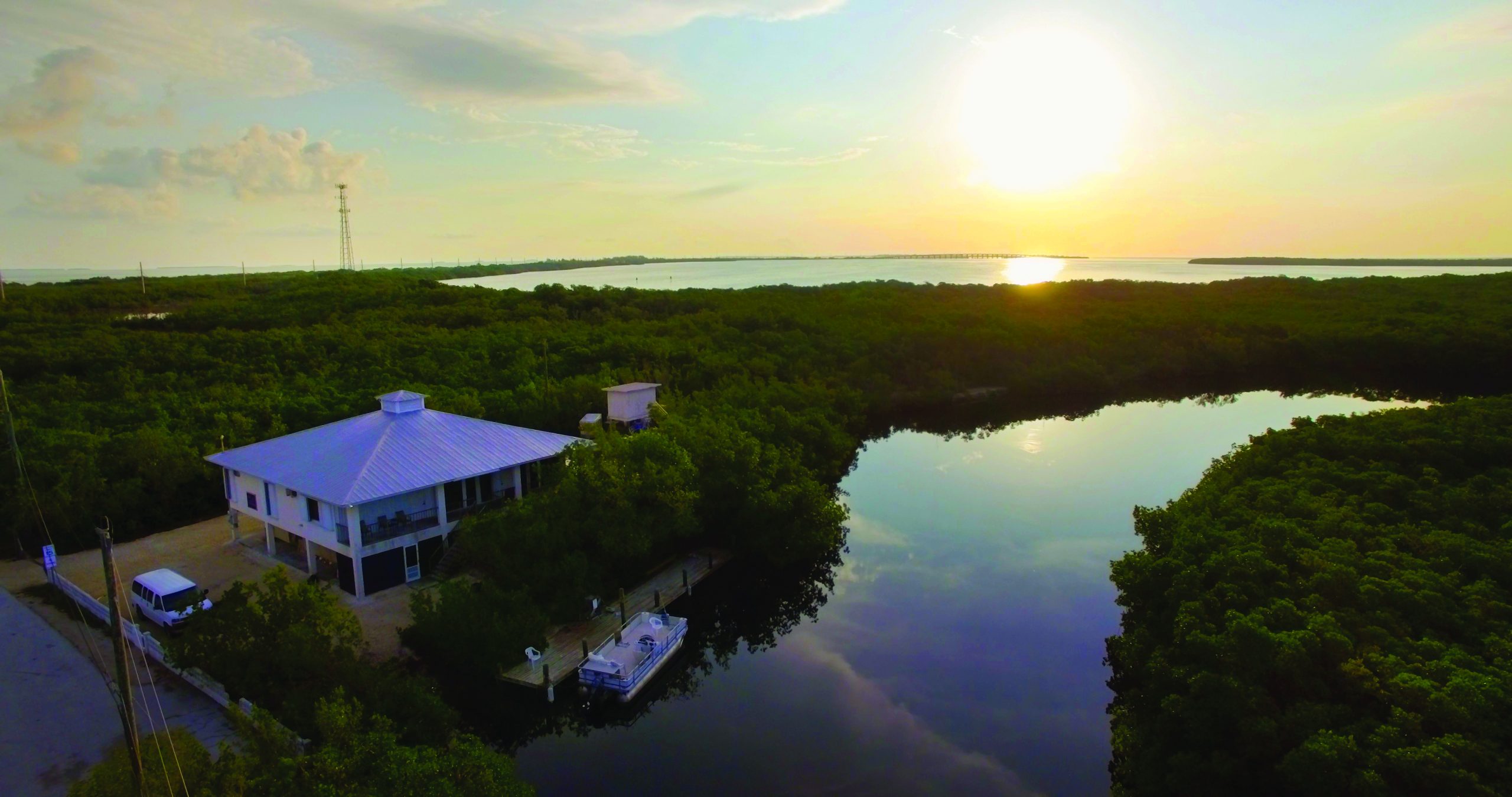
J.N. Roth Marine Biology Station
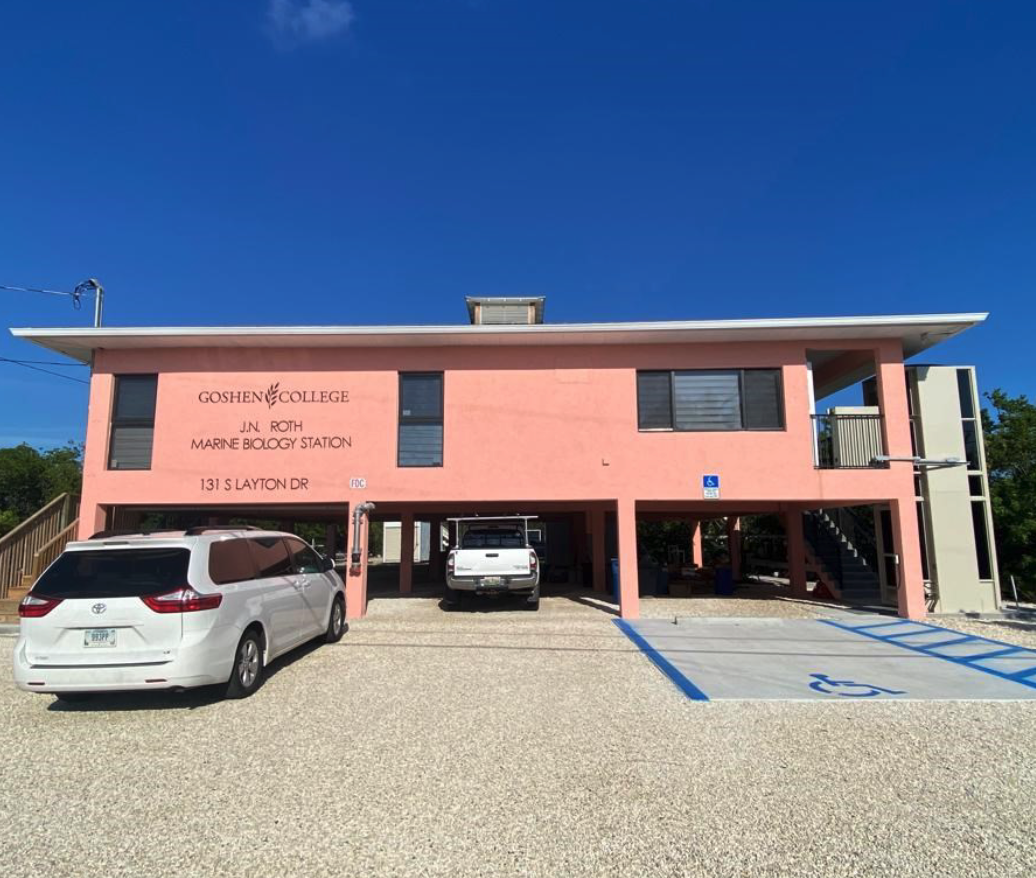
Goshen College’s J.N. Roth Marine Biology Station is located in the middle of the Florida Keys, approximately 2 hours south from Miami. Located in the city of Layton, Florida, the facility provides students and researchers with direct access to diverse marine ecosystems such as mangrove estuaries, sponge reefs, mudflats, seagrass beds, and of course coral reefs.
Completed in 1986, the station has been integral to Goshen College’s marine biology program, offering hands-on field-based learning experiences. Students engage in immersive field courses such as Marine Biology, Marine Ecology and Marine Conservation. Course activities include morning lectures and daily snorkeling excursions. Students also complete an internship with local marine organizations and an independent thesis research project. In 2017, Hurricane Irma caused significant damage to the station, leading to extensive renovations.
These improvements included updating the living quarters and enhancing the facility’s resilience to future storms. The station now features modernized accommodations, including two dorm-style student bedrooms with shared bathrooms, a full kitchen with an induction stove and convection oven, as well as common areas for dining, relaxing, and learning. The instructor room has a private bathroom. The station has a boat ramp and a 58 ft boat dock that provides access to Florida Bay or the Atlantic Ocean. Outdoor showers and rinse bins are available to clean gear after a day in the field.
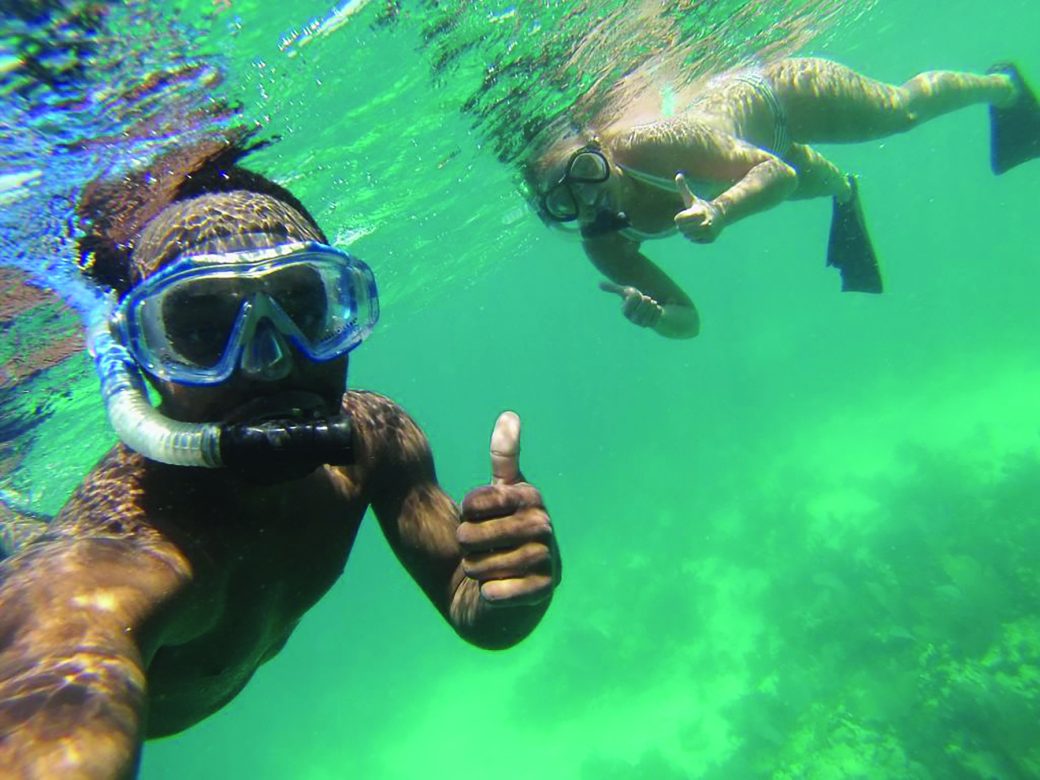
History
The Marine Biology Program has been a part of the Goshen College Biology Department since 1966, when Drs. Jonathan N. Roth and C. Franklin Bishop accompanied a small group of students to Pigeon Key during spring vacation. After three years the program moved to more suitable facilities on Big Pine Key.
When a Goshen College faculty member who had retired in Layton (Long Key) prevailed on the Goshen group to drive 30 miles to sing in the Layton Community Baptist Church, church deacon Del Layton, mayor of the town of Layton, took great interest in the Goshen College program. At his invitation the program moved to Layton. Marine biology laboratory sessions the first year were held in the Layton town hall; in subsequent years in a laboratory building erected in association with Lime Tree Bay Resort. Later, a group headed by Layton donated a parcel of land for the purpose of building a marine biology laboratory. In 1985 GC responded to Layton’s generosity by erecting the current building.
In recognition of the instrumental role that John N. Roth and C. Frank Bishop played in establishing the marine program, in 2009 President James Brenneman officially named the facility the J.N. Roth Marine Biology Station and the laboratory the C.F. Bishop Marine Biology Laboratory.
Dr. Duane Kauffmann wrote a history of the marine biology program entitled: Willamette Valley to Long Key: The Story of the Goshen College Marine Biology Program.
Courses & Activities
Goshen College students have numerous opportunities to study Marine Biology in the Florida Keys, including participation in an annual course, marine ecology research projects, and the Marine Biology Internship Program.
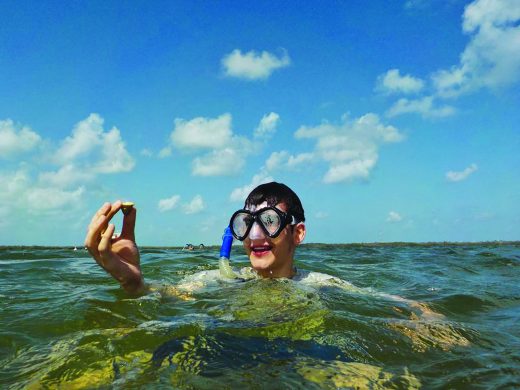
BIOL 304
Students at Goshen College gain an in depth exposure to marine systems through taking BIOL 304 Marine Biology, taught for 3 weeks during May-term. This class has been operating for more than 50 years, and are often cited as a highlight of students’ academic experience at Goshen.
The course is an intensive exposure to marine systems which highlights: a) the important theoretical ways marine systems are structured differently that terrestrial systems, b) the taxonomic diversity of life found in various marine habitats, and c) the process of designing and implementing ecological research in marine systems.
Marine Biology Semester
Since 2019, the college has offered a new Marine Biology Semester in the Florida Keys. During this semester-long residential program, environmental and marine science majors with a marine biology track take 2 courses, complete an internship with a local marine organization and design their own research project — all the while living at the J.N. Roth Marine Biology Station. The Marine Biology Semester is offered annually in the fall semester for 12 weeks, beginning in late September and going through early December.
Reserving the Marine Biology Station
Goshen College owns and operates the J.N. Roth Marine Biology station to provide high quality research and educational opportunities in marine science for students, teachers, and researchers.
With the long-term intention of contributing to the preservation and restoration of the ecological integrity of the Florida Keys, we welcome your group to make use of our facility.
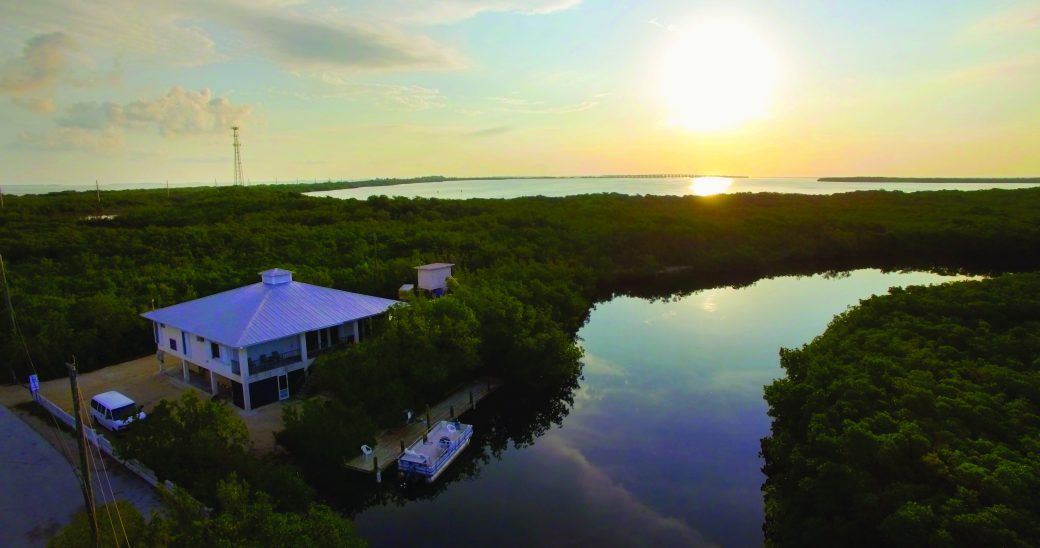
Aerial of Long Key Island, Florida Goshen College Marine Biology
The station is available to school groups (high school to higher ed), non-profit organizations, and government agencies for various field-based research and educational activities. The maximum capacity of the station is 13, including one adult group leader.
Potential activities include:
- Field-based Research Projects
- Hands-on Educational Activities
- Specialty Classes (i.e. SCUBA, Photography)
- Professional Development for Educators
- Training Retreat for Non-Profit Organizations
- Lifelong Learning
- Creating Collaborative Learning Community
Contact
Contact Phil Allman, Station Director, at pallman@goshen.edu if you have questions about the marine biology program, research opportunities, or the station.